How to Self Study Intermediate Analysis Math
If you wish to follow this guide, then you should know how to do analysis on ##\mathbb{R}## and ##\mathbb{R}^n##. See my previous insight if you wish to know what kind of topics you need to know and for suggestions of books: https://www.physicsforums.com/insights/self-study-analysis-part-intro-analysis/
Also in many parts, you should be comfortable with linear algebra, see my insight on that: https://www.physicsforums.com/insights/self-study-algebra-linear-algebra/
Now we will take one step further. While analysis on ##\mathbb{R}## and ##\mathbb{R}^n## is fun and exciting, it is just the tip of the iceberg. We will see now how to go further. If you learned analysis on ##\mathbb{R}## and ##\mathbb{R}^n## well, you should have no difficulty at all. Most of the things you’ll see are careful but powerful generalizations of the classical context.
Central in this state of your studying will be the concepts of metric spaces, normed spaces, and Hilbert spaces on one hand, and measure theory on the other hand. Those form the backbone of almost all other types of analysis out there. The best place to start according to me is with
Table of Contents
Carothers – Real Analysis
http://www.amazon.com/Real-Analysis-N-L-Carothers/dp/0521497566
This is truly a gem of a book. It motivates all new concepts very carefully and provides a lot of intuition, motivation, and guidance at every step of the way. Not to say that the exercises in Carothers are brilliant. There are so many exercises in the book. Some of the exercises are tagged as “must do”, the others are optional.
This book will deal with
- Metric spaces
- Function spaces
- Measure theory on ##\mathbb{R}##
The coverage of these concepts is very profound and exhaustive. The only minor point is that it is too bad that no measure theory on more general spaces is developed, but the book is already quite heavy as it is.
In the section of metric spaces, you will learn
- Open and closed sets
- Continuity
- Completeness
- Compactness
- Connectedness
- Category theorems
Another book that covers metric spaces very thoroughly is O’Searcoid “Metric spaces” http://www.amazon.com/Metric-Spaces-Springer-Undergraduate-Mathematics/dp/1846283698/
In the section of Function spaces, you will do
- Uniform convergence
- Fourier series
- Stone-Weierstrass theorem
- Ascoli-Arzela theorem
- Bounded variation
- Stieltjes integration
And finally, in the section on measure theory, you will do
- Lebesgue measure
- Measurable functions
- Lebesgue integral
- Differentiation theory
Once you finished Carothers, it is time to see measure theory somewhat more in-depth. For this I recommend:
Jones – Lebesgue integration on Euclidean space
http://www.amazon.com/Lebesgue-Integration-Euclidean-Bartlett-Mathematics/dp/0763717088
This gives a very deep but intuitive development of measure theory in ##\mathbb{R}^n##, but also occasionally does things on general measure spaces. While the construction of the Lebesgue measure is very rushed in most books, Jones takes it slow and tries to do things in the neatest way possible. The book also considers quite a few applications of measure theory to other parts of analysis. This book covers:
- Lebesgue measure on ##\mathbb{R}^n##
- Invariance of Lebesgue measure and a formal proof of why the determinant actually measures a volume
- Borel sets and measurable functions
- Lebesgue integration over ##\mathbb{R}^n##
- Fubini-Tonelli theorem
- The Gamma function
- ##L^p## spaces
- Convolutions
- Fourier theory on ##\mathbb{R}^n##
- Differentiation theory on ##\mathbb{R}^n## and ##\mathbb{R}##
It would be good to complement Jones with a book that does all these things on general measure spaces. For this, I highly recommend:
Bartle – The Elements of Integration and Lebesgue measure
http://www.amazon.com/Elements-Integration-Lebesgue-Measure/dp/0471042226
This book deals with much of the same topic as in Jones but takes the more high brow route. It is probably a good idea to do this book together with Jones. The book covers
- Measurable functions
- Measures
- Integral
- Integrable functions
- ##L^p## spaces
- Different kinds of convergence
- Decomposition of measures
- Generation of measures
- Product measures
- Outer measure
- Measurable sets
- Approximation of measurable sets
- Additivity
- Non-Borel sets and Non-measurable sets
By completing Bartle you will have gained enough familiarity with measure theory to understand most advanced analysis texts. But I do need to comment that the Lebesgue integral isn’t the best possible integral. On ##\mathbb{R}##, there is a better integral called the Henstock-Kurzweil or gauge integral. Studying this integral is not necessary, but if you do wish to do so (and the theory is quite beautiful), then I highly recommend Bartle – A modern theory of integration http://www.amazon.com/Modern-Integration-Graduate-Studies-Mathematics/dp/0821808451
At this stage, it is probably also a good idea to start learning a bit of functional analysis. The best introduction to functional analysis (and a book that is quite elementary too) is
Kreyszig – Introductory functional analysis with applications
http://www.amazon.com/Introductory-Functional-Analysis-Applications-Kreyszig/dp/0471504599
This book does not require measure theory, so you could probably read this after you’ve done the parts of metric and function spaces of Carothers, but those are not hard requirements either (I do recommend doing it at least together with Carothers). If you did do measure theory already, then this book is still worth reading, and it could be a very neat exercise to try to extend the theorems to a more general context. This book covers:
- Metric spaces
- Normed spaces and Banach spaces
- Inner product spaces and Hilbert spaces
- Fundamental theorems for normed and Banach spaces
- Banach fixed point theorem and application to linear/differential/integral equations
- Approximation theory
- Spectral theory of linear operators in normed spaces
- Compact linear operators on normed spaces and their spectrum
- Spectral theory of bounded self-adjoint linear operators
- Unbounded linear operators in Hilbert space
- Unbounded linear operators in Quantum Mechanics
As you see, a lot of topics coincide with topics in Carothers, but things are definitely done here with a new point of view. It ends with a very nice section of quantum mechanics, which I feel is very important to really appreciate functional analysis more. Aside from analysis, you should be very comfortable with linear algebra, since that is what functional analysis tries to generalize.
The next step from here is to learn complex analysis and topology, but that will be detailed in another insight.
Advanced education and experience with mathematics

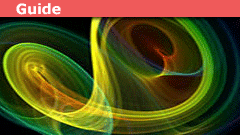
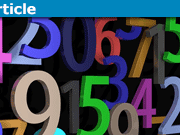
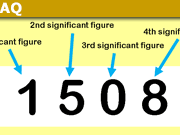
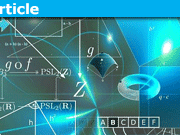

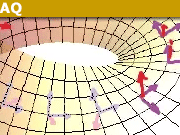
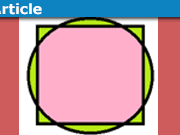
thanks alot
would you please introduce free ebooks in these subjects?
thanks again for your usefull guides
Thank you micro ! Your guides are very helpful.
“But this place is a SCIENCE forum. You said yourself … the ugh”
Why can’t we have fun with science? Make jokes in science? Tease each other a bit in science?
This thread is diverting horribly. [USER=592697]@Lulumay[/USER] Sorry if my comment offended you even if it wasn’t for you. That’s all okay? Chill out.
“It is rude. This place is for science. No jokes”
I really wouldn’t be active here if there were no place for jokes. Jokes and humor should be important everywhere. Otherwise you get this bunch of rigid and cold scientists who can’t take a joke. Nobody wants that!
“Yes, ProfuselyQuarky should not care when your here or not.”
It’s an innocent joke! Why so serious?
“Doubting someones presence is rude.”
Is it?
“Welcome to PF [USER=592697]@Lulumay[/USER]!
Uh, no. That was supposed to be a compliment. I admire micromass’ commitment and passion for math. Not sure why you thought otherwise :oldconfused:”
I don’t know, the “ugh” can be interpreted negatively :sorry:
I’m not on here 24/7 though, even though I’d like to be. We just happen to be online at the same time often…
Welcome to PF [USER=592697]@Lulumay[/USER]!
“Is that bad? :nb)”
Uh, no. That was supposed to be a compliment. I admire micromass’ commitment and passion for math. Not sure why you thought otherwise :oldconfused:
Ugh . . . you really are on PF 24/7 :smile::smile:
“That day might come quicker than you think!”
I hope so. Reading about metric spaces is fascinating (especially continuity).
“Came across Carother’s Real Analysis at my campus’ “take because we don’t want them” book pile. I think I’ll take it and perhaps one day I’ll be able to understand.”
That day might come quicker than you think!
Came across Carother’s Real Analysis at my campus’ “take because we don’t want them” book pile. I think I’ll take it and perhaps one day I’ll be able to understand.
thanks alotwould you please introduce free ebooks in these subjects?thanks again for your usefull guides
Thank you micro ! Your guides are very helpful.